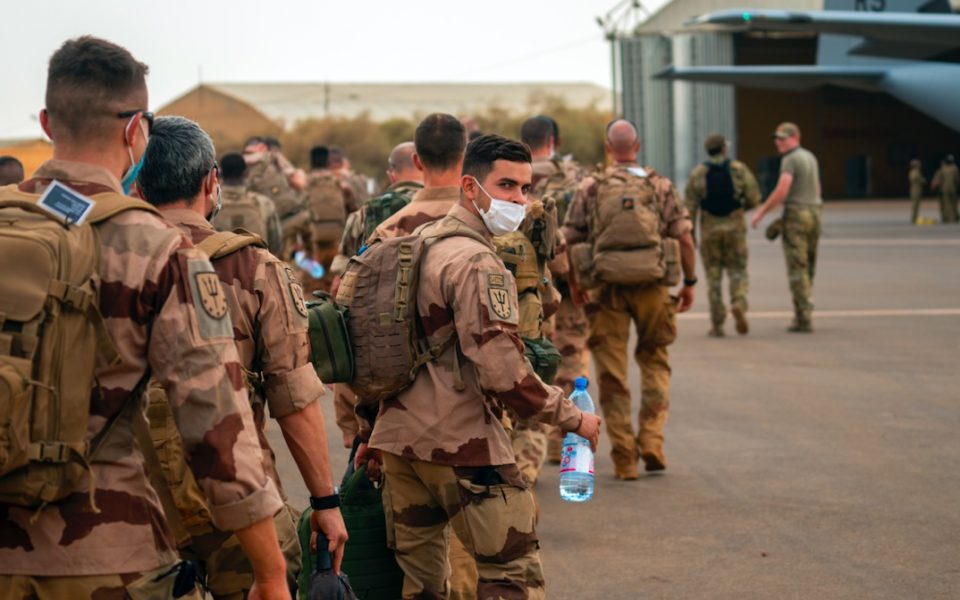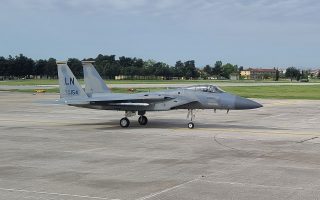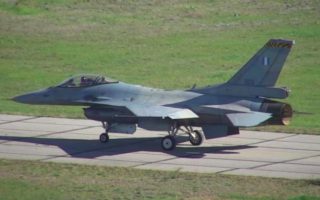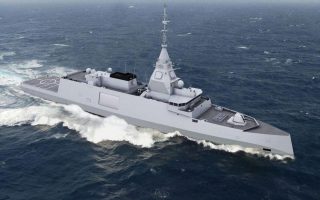Does Greece have any business in the Sahel?

The discussion about the likelihood of Greece having to send a military mission to the Sahel region of sub-Saharan Africa, as a result of its mutual defense assistance pact with France, raises two questions: The first and most immediate one is does Greece have any business in the Sahel? The second, more general one concerns the participation of Greek troops in multinational missions and operations.
With regard to the African region in question, a European force is operating there under the auspices of France, with the cooperation of the United States, the support of NATO and the approval of the United Nations Security Council, at the invitation of the so-called G5 Sahel: Burkina Faso, Mauritania, Chad, Mali and Niger. The region is plagued by enormous and intertwined political, economic, social and racial problems that are only being exacerbated by the impact of climate change. What’s more, various armed Islamist groups active in the Sahel have – often by force – joined the Islamic State.
Although there is the risk of the European forces becoming embroiled in a war without end if the underlying problems are not addressed, intervention is the only option. A withdrawal of the European forces would lead to the collapse of state authorities and widespread instability, which would spread south and north, to reach the Mediterranean coast. Turkey (which already has a presence in the region) and Russia would be quick to step into the security vacuum, as has already been the case in Somalia, Libya and Syria.
The situation is fraught with dangers for Europe, but also for Greece: On the one hand we face the threat of destabilization to our south and the migrant and refugee flows that would entail, and on the other if Turkey and Russia tightened their grip – if they are not held in check – it would have an impact on the entire area of North Africa and the Middle East. There’s a good reason why both the High Representative of the European Union for Foreign Affairs and Security Policy Josep Borrell and European Commission President Ursula von der Leyen have repeatedly stressed the connection between stability in the Sahel and European security.
In view of the strategic cooperation agreement Greece signed with France, it would be peculiar, and at the very least it would contravene the spirit of the agreement and undermine its credibility, if we did not respond to France’s appeals when countries like Belgium, Portugal, Denmark, Estonia, Italy, Sweden and the Czech Republic have already and seven more have pledge to do so. Our forces, after all, would not be involved in actual operations, but would serve to protect one of the bases and man certain staff positions.
The issue is also indirectly linked to the question of Greece’s participation in the European Intervention Initiative (EI2), of which 13 European countries are already a part. For obvious reasons, Greece would also like to be included, but any country wanting to join must demonstrate that it is willing and able. France has made a commitment in the recent agreement to support our bid, but we must first do our part. It is worth remembering that we were welcomed into NATO after taking part in the Korean War, while our participation in the Gulf War (even though our frigates were not even close to the area of operations) got us into the Western European Union (WEU) alliance and allowed us to bolster the Hellenic Navy with American warships.
The above takes us to the second issue: What business do Italy, Norway, Denmark etc have in Afghanistan? What business do Estonia, Sweden, the Czech Republic etc have in the Sahel? These are questions we have never asked. Maybe we need to realize that a country’s national interests are not always served directly, but often indirectly. It is a rule of international relations that you need to participate if you want to be counted. If you want to have a say in shaping security architecture, you need to have an active role. If you want to be invited to meetings and talks on international issues, you need to have a presence in the field. If you want others to contribute to your security, you must contribute to theirs. No one in the international community likes a free rider. In short, if we want Europe to contribute to Greece’s security, Greece must contribute to Europe’s security.
Another very important parameter is operational experience. Ever since the Korean War, Greece’s participation has been in noncombatant roles in the rearguard. Armed conflict is a formidable challenge that pushes people to their physical and mental limits. Being armed and trained is not enough; you also need to be battle-hardened. As with everything in life, it requires experience that can only be acquired firsthand. The Italians lost 53 soldiers in Afghanistan but the experience there acted as a lever to operationally upgrade their armed forces. The same goes for Sweden in Mali and other countries – and Turkey especially, which has a great deal of experience in different battlefields over the course of many years. It is worth noting that the Azeris in Nagorno-Karabakh adopted the same tactics as NATO did in Afghanistan, guided by Turkish officers.
The military personnel who take part in such missions and operations are professionals and such work innately entails a sense of risk. The armed forces are not just another branch of the state apparatus. A military that is afraid of sustaining losses is neither respected by friends nor feared by foes. No one gives much stock to an ally who hides when the going gets tough.
The proverbial “Greek mother” (like every mother, of course) obviously does not want to lose her child in the Sahel or anywhere else. It is also understandable that – given our history and the heavy toll this nation has paid in blood – we do not want to put the lives of our soldiers on the line on faraway battlefields. Nevertheless, we need to have a serious conversation about what we want as a state and what we can tolerate as a society. It needs to be a frank discussion, without taking false comfort.
These are the rules of the international system, and we need to decide what kind of position we want to occupy in it. Every choice carries a cost, there can be no benefits without risks and we cannot have it all. But, as the saying goes, if you can’t take the heat, get out of the kitchen. In that case, though, you won’t have a say in what’s cooking; you’ll just have to eat what’s in front of you.
* Alexandros Diakopoulos is a former national security adviser.





